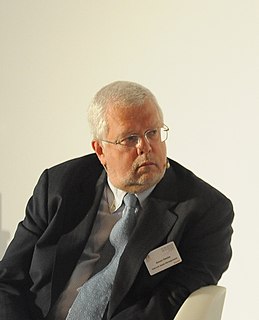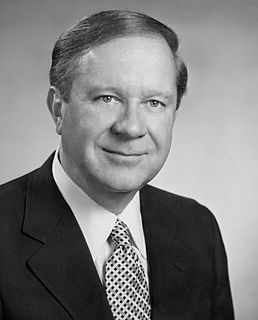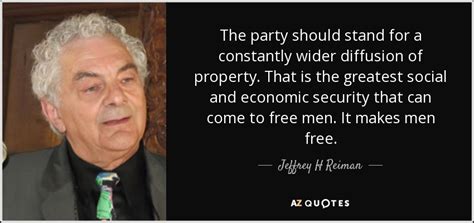A Quote by Barbara Castle
You see, another reason for nationalization was that private ownership meant fragmentation.
Related Quotes
What is acted out on the female body parallels the larger practices of domination, fragmentation, and conquest against the earth body, which is being polluted, strip-mined, deforested, and cut up into parcels of private property. Equally, this pattern points to the fragmentation of the psyche, which ultimately underlies and enables all of this damage.
We hold that the ownership of private property is the right and privilege of every American citizen and is one of the foundation stones upon which this nation and its free enterprise system has been built and has prospered. We feel that private property rights and human rights are inseparable and indivisible. Only in those nations that guarantee the right of ownership of private property as basic and sacred under their law is there any recognition of human rights.
There are but three political-economic roads from which we can choose... We could take the first course and further exacerbate the already concentrated ownership of productive capital in the American economy. Or we could join the rest of the world by taking the second path, that of nationalization. Or we can take the third road, establishing policies to diffuse capital ownership broadly, so that many individuals, particularly workers, can participate as owners of industrial capital. The choice is ours.
We shall never understand the natural environment until we see it as a living organism. Land can be healthy or sick, fertile or barren, rich or poor, lovingly nurtured or bled white. Our present attitudes and laws governing the ownership and use of land represent an abuse of the concept of private property.... Today you can murder land for private profit. You can leave the corpse for all to see and nobody calls the cops.
All the alleged key causes of SOE [State-Owned Enterprise] inefficiency - the principal-agent problem, the free-rider problem and the soft budget constraint - are, while real, not unique to state-owned enterprises. Large private-sector firms with dispersed ownership also suffer from the principal-agent problem and the free-rider problem. So, in these two areas, forms of ownership do matter, but the critical divide is not between state and private ownership - it is between concentrated and dispersed ownerships.
The widespread distribution of private property ownership is the cornerstone of American liberty. Without it neither our free enterprise system nor our republican form of government could long endure.... The next Republican Administration will...not only protect the cherished human right of property ownership, but will also work to help millions of Americans - particularly those from disadvantaged groups - to share in the ownership of the wealth of their nation.


































